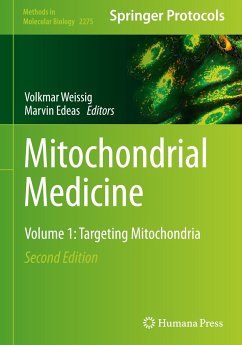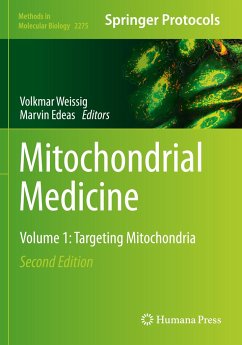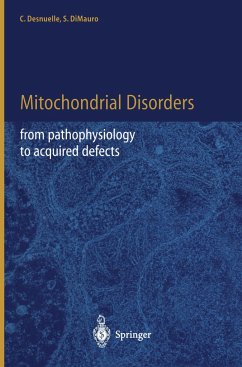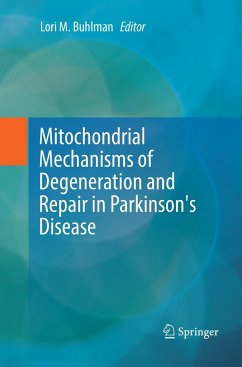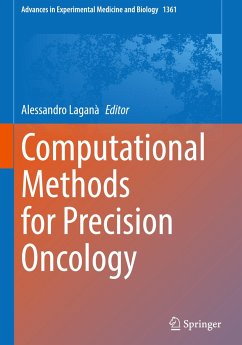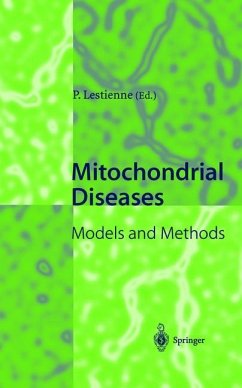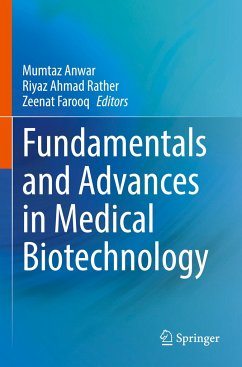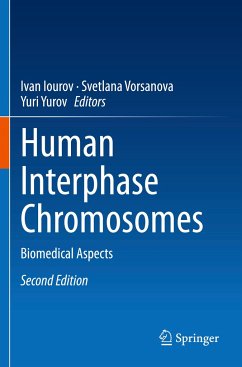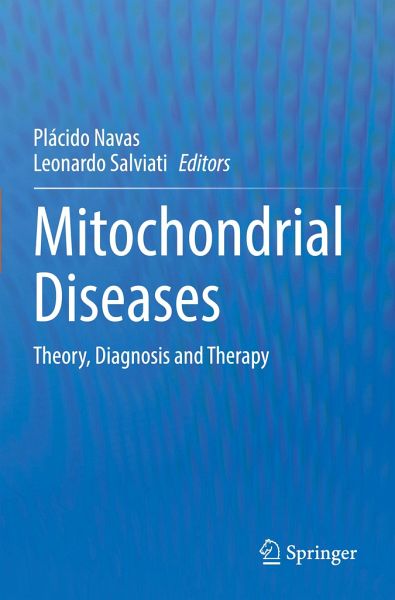
Mitochondrial Diseases
Theory, Diagnosis and Therapy
Herausgegeben: Navas, Placido; Salviati, Leonardo
Versandkostenfrei!
Versandfertig in 6-10 Tagen
106,99 €
inkl. MwSt.

PAYBACK Punkte
53 °P sammeln!
Mitochondrial diseases comprise a clinically and genetically heterogeneous group of rare disorders that may affect virtually any system of the body at any age. Due to their complexity, understanding and diagnosing these diseases requires a multidisciplinary approach.This book provides an update on the major features of human mitochondrial diseases: genetic bases, pathophysiology, diagnosis, and treatment, and of the new technologies involved in the diagnosis and on the characterization of patients. The 11 chapters examine the unique complex interactions between the mitochondrial and the nuclea...
Mitochondrial diseases comprise a clinically and genetically heterogeneous group of rare disorders that may affect virtually any system of the body at any age. Due to their complexity, understanding and diagnosing these diseases requires a multidisciplinary approach.
This book provides an update on the major features of human mitochondrial diseases: genetic bases, pathophysiology, diagnosis, and treatment, and of the new technologies involved in the diagnosis and on the characterization of patients. The 11 chapters examine the unique complex interactions between the mitochondrial and the nuclear genomes involved in the biogenesis and the regulation of the mitochondrial respiratory chain, and their relevance to human disease. We discuss the traditional biochemical and genetic approaches, as well as the new omic technologies, and the cellular and animal models used in mitochondrial research. The last chapter is dedicated to the current treatment options.
Authors are worldwide experts in these fields and integrate expertise in both basic science and clinical research.
This book is particularly important for both scientists and clinicians interested in the diagnosis and treatment of these diseases.
This book provides an update on the major features of human mitochondrial diseases: genetic bases, pathophysiology, diagnosis, and treatment, and of the new technologies involved in the diagnosis and on the characterization of patients. The 11 chapters examine the unique complex interactions between the mitochondrial and the nuclear genomes involved in the biogenesis and the regulation of the mitochondrial respiratory chain, and their relevance to human disease. We discuss the traditional biochemical and genetic approaches, as well as the new omic technologies, and the cellular and animal models used in mitochondrial research. The last chapter is dedicated to the current treatment options.
Authors are worldwide experts in these fields and integrate expertise in both basic science and clinical research.
This book is particularly important for both scientists and clinicians interested in the diagnosis and treatment of these diseases.





